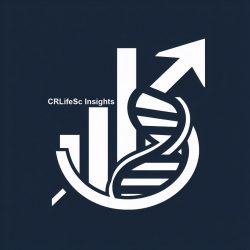The Common European Framework of Reference for Languages (CEFR) defines language proficiency levels. At the B1 level, individuals can understand the main points of clear, standard speech on familiar topics; express themselves coherently on everyday matters; and write simple texts on familiar subjects. However, the question is whether B1 and B2 levels are sufficient to work in the pharmaceutical industry.
While B1 proficiency is a commendable achievement, it seems to fall short in the pharmaceutical industry as there are critical considerations that highlight its limitations in this specialized field.
The industry uses specialized terminology related to drug development, pharmacology, and clinical trials. It seems obvious that professionals must understand and use this vocabulary accurately.
In today’s globalized world, effective communication is paramount. Nowhere is this more evident than in the pharmaceutical industry, where collaboration, research, and regulatory compliance rely heavily on clear and precise language. Proficiency in English is not just a desirable skill; it is an absolute necessity for professionals working in this field. Fluency in additional languages (such as English, which is often the industry’s lingua franca) enhances market access and facilitates international partnerships.
At the B2 level, which is a bit higher, professionals can understand the main ideas of complex texts and participate in discussions. While B2 proficiency may suffice for entry-level positions, career progression often demands higher language skills. As professionals take on managerial roles, fluency becomes essential for effective leadership, mentoring, and decision-making. Advanced roles seem to require the ability to articulate complex ideas persuasively, and the pharmaceutical industry still demands a much deeper understanding of scientific concepts.
Professionals need to navigate intricate research papers, clinical trial protocols, and regulatory guidelines. Worldwide pharmaceutical companies conduct clinical trials across borders, and these trials involve interactions with patients, healthcare professionals, and regulatory bodies. Clear communication is vital for informed consent, adverse event reporting, and patient education. A B2 level may limit empathy and nuanced communication, impacting patient safety and trust.
In drug development, precision is non-negotiable, and misunderstandings can lead to serious consequences. It is fundamental that professionals convey information accurately and unambiguously. For this reason, understanding and adhering to protocols, informed consent forms, and safety reporting require a solid grasp of English. Without a higher level of language proficiency, nuances may be missed, potentially affecting decision-making and patient safety.
The pharmaceutical industry operates within a web of regulations and legal frameworks. Professionals must interpret guidelines from health authorities, comply with Good Clinical Practice (GCP), and ensure drug safety. Pharmaceutical companies need their professional workers to frequently write technical reports, research summaries, and regulatory submissions. Standard Operating Procedures (SOPs), on the other hand, guide every aspect of drug development, from manufacturing to distribution. Clear comprehension of SOPs is crucial for maintaining quality and safety. These documents require precision, clarity, and adherence to industry-specific terminology. Furthermore, regulatory submissions, including New Drug Applications (NDAs) and Investigational New Drug (IND) applications, or regulatory bodies audits and inspections, must be meticulously prepared and professionals must communicate confidently during these processes. Companies must consider that any errors or misinterpretations can lead to delays or even rejection. A B2 level may hinder effective communication with regulatory bodies, leading to compliance gaps or delays in approvals.
Collaborations between pharmaceutical companies, research institutions, and universities often span continents. Effective communication ensures successful joint ventures and breakthroughs. Business negotiations, licensing agreements, and collaborations involve legal and financial aspects. Any level below C1 proficiency may hold back effective negotiation and contract drafting.
While B2 proficiency is a valuable starting point, aspiring pharmaceutical professionals should aim for continuous improvement. Investing in language training, immersion, and specialized vocabulary acquisition can bridge the gap between B2 and higher proficiency levels. Whether you’re a researcher, regulatory affairs specialist, or medical writer, consider language mastery an integral part of your professional development.
In summary, B2 proficiency opens doors, but fluency propels careers in the pharmaceutical industry toward excellence. Fluency at the C1 or C2 level ensures the ability to convey complex information accurately.
References:
- [Language Proficiency Levels: CEFR and Beyond] (https://www.cambridgeenglish.org/exams-and-tests/cefr/)
If you are interested in enhancing your English language skills in the Pharmaceutical Industry click on English course for the Pharmaceutical Industry.



